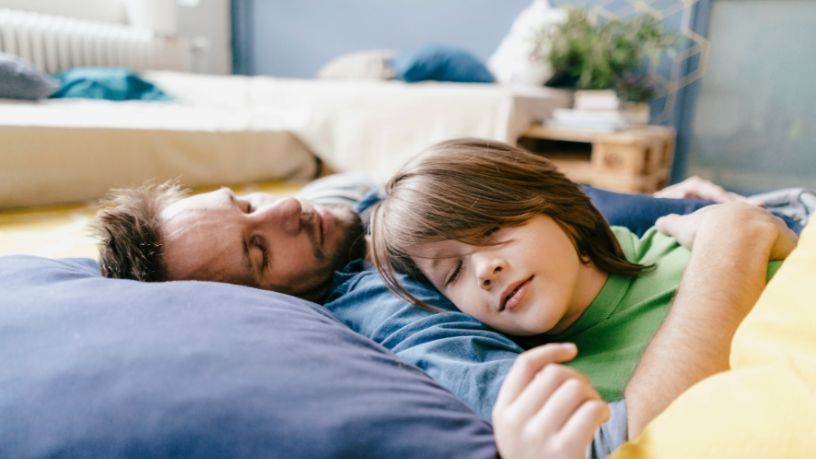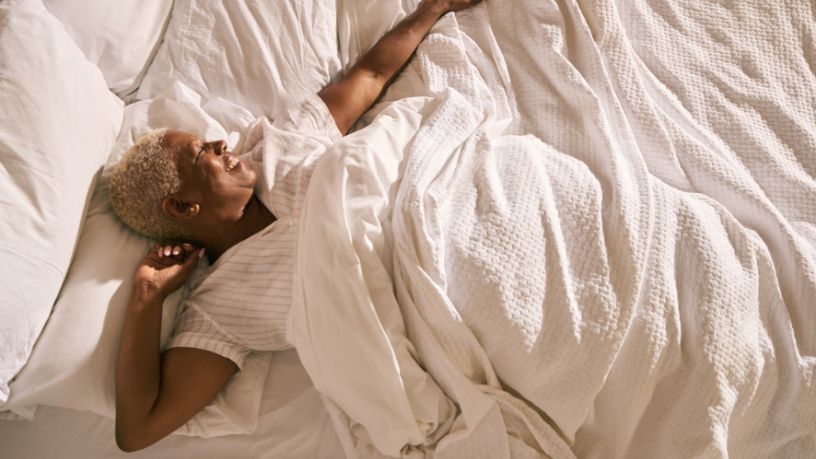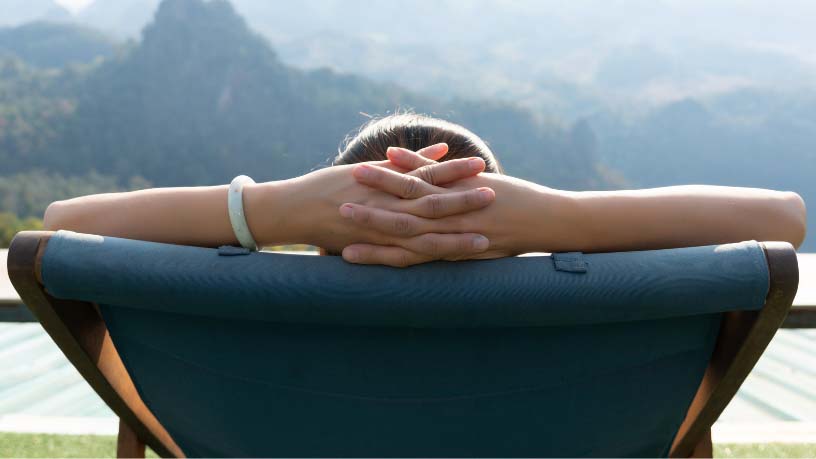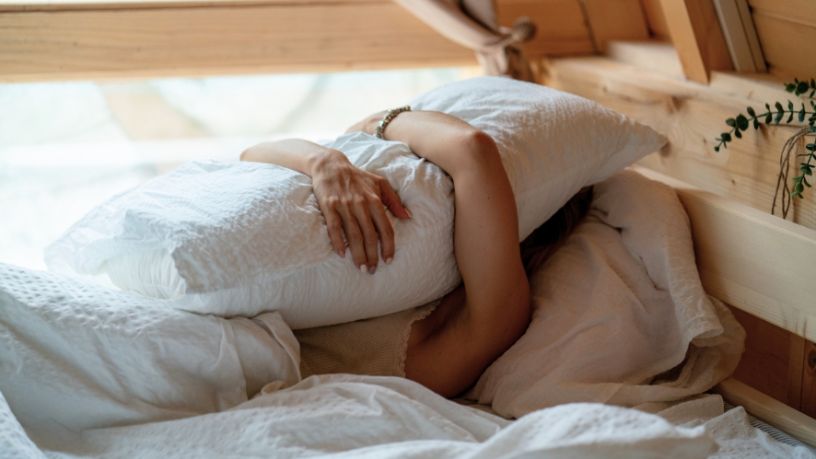What we do during the day affects our sleep patterns.
Key takeaways
Establish a regular routine to wind down before you go to bed.
Create a calm sleep sanctuary in your bedroom.
Do you stare at the ceiling in the early hours of the morning while you calculate how little sleep you’d have even if you drifted off immediately? If that describes you, then you know the frustration of sleep deprivation.
While we often think of sleep issues as a night problem, what we do during the day matters too.
Set your body clock
Going to bed and waking up at the same time can help regulate our sleep wake cycle.
Sleep and rest educator Jo Buick explains that the hormone regulating our daily sleep-wake cycle (melatonin) can only be released in dimly lit or dark environments.
“When we use artificial lighting to stay up later than our bodies are programmed for, it can interrupt the flow of hormones that support quality and nourishing sleep,” says Buick.
Exercise regularly
Multiple studies have shown regular moderate aerobic exercise helps us fall asleep faster and improves sleep quality.1 As a bonus, it can make us feel more awake during the day.
“Exercise not only releases endorphins, but it also helps to regulate body temperature, supporting rest and relaxation,” says Buick.
She recommends gentle exercise such as walking, yoga, Pilates and light weights.
Embrace natural light
In a world filled with artificial lights and screens, it’s vital to embrace natural light when we can.
“When your eyes take in sunlight, the part of your retina that releases serotonin, our feel-good hormone, is stimulated, boosting mood and increasing energy levels,” says Buick.
She recommends directing our eyes towards sunlight as soon as possible in the morning, and as often as we can during the day.
“This will support a more regular release of serotonin and can be effective if you are working on a screen or in artificially lit spaces.”
Create a sleep sanctuary
If we want to sleep better, Buick says we should ensure our bedrooms are set up to promote sleep, rather than work, eating, or streaming.
“For both biological and spiritual reasons, humans sleep best in spaces that are dark or dimly lit,” she explains.
“Regulating temperature and ensuring airflow is also important. We sleep best in rooms that are around 18 degrees [Celsius]. Texture and scent can also have a powerful influence on your state of being.”
Buick suggests:
- opening windows during the day to encourage airflow
- exchanging bright light bulbs for softer glows
- placing fresh flowers in a vase next to your bed
- using incense, sage or oil burners in your bedroom to cleanse the air
- shaking out bedspreads and pillows regularly.
Take time to wind down
We need to train our bodies to be ready for sleep.
“In a purely biological sense, trying to shift from the intensity and fullness of life directly into sleep is almost impossible,” says Buick. “We need to spend time in a state of ‘deactivation’ before we can access any kind of restoration.
“Sleep rituals support our nervous systems and brains by engaging the parasympathetic nervous system, [which is] the part of the body that is responsible for resting and digesting.”
Buick suggests:
- avoiding caffeine and other stimulants after lunch
- eating earlier dinners
- somatic stress relief practices to release any tension in your body
- stretching before bed
- gentle evening walks
- digital wind downs (putting screens away after 9pm).
“Making the transition between alertness and sleep is all about repetition and practise,” says Buick.
“It can take months or even years to alter sleep patterns, but the only way to do it is to stick with the changes you are trying to make.”
If you are struggling with sleep and none of the options above are supportive, Buick recommends seeking the help of a medical professional.
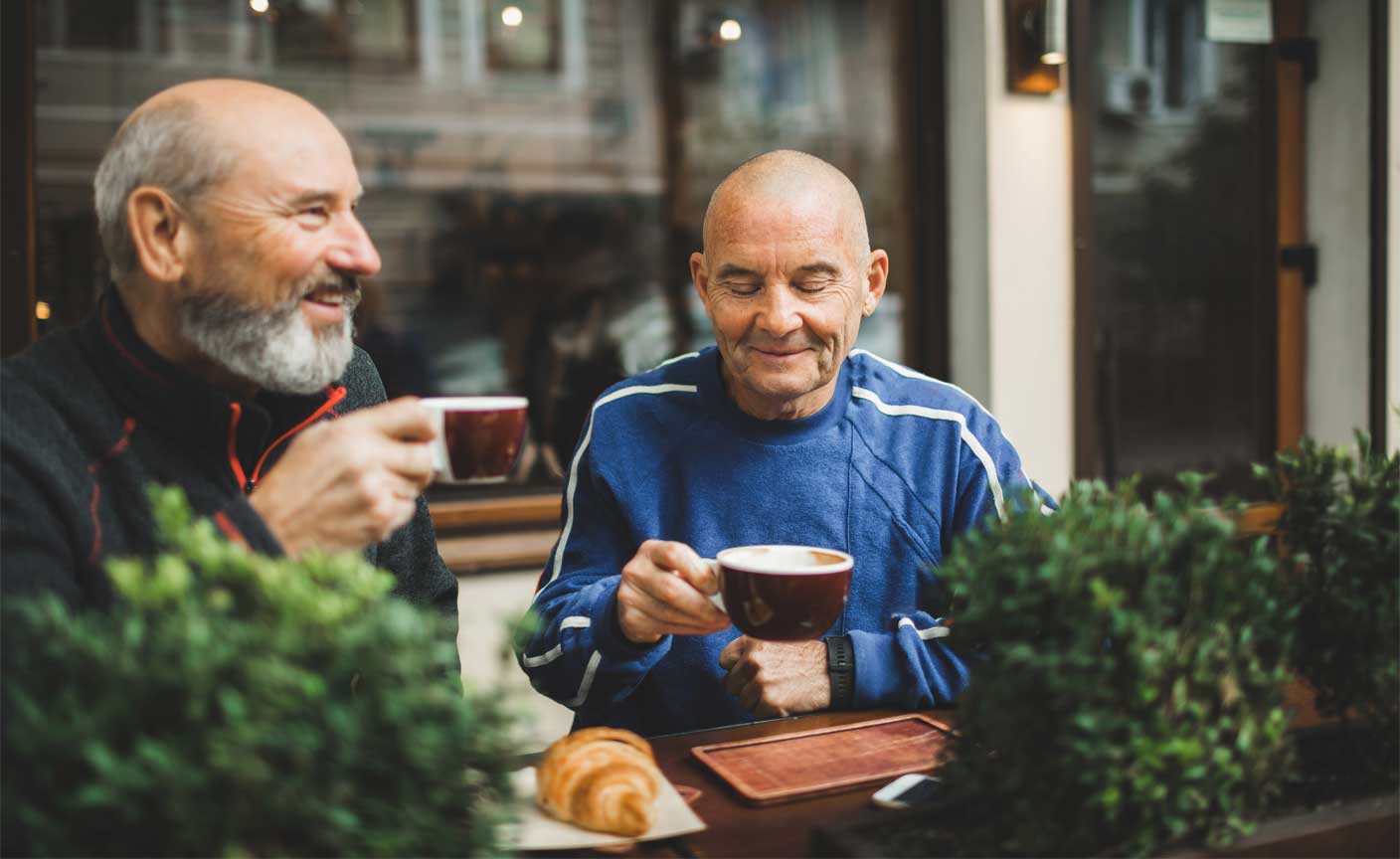

At Bupa, trust is everything
Our health and wellbeing information is regularly reviewed and maintained by a team of healthcare experts, to ensure its relevancy and accuracy. Everyone's health journey is unique and health outcomes vary from person to person.
This content is not a replacement for personalised and specific medical, healthcare, or other professional advice. If you have concerns about your health, see your doctor or other health professional.
1Johns Hopkins Medicine. (2021). Exercising for better sleep. Johns Hopkins Medicine.
You might also like...
How important is sleep?
Making sure you have a good night's sleep is one of the best things you can do for your health and wellbeing.
Different types of sleep
Your body is actually quite active when you’re asleep, repairing cells, regenerating tissue and helping you grow. So how does REM and non-REM sleep work?
Breaking the stress-sleep cycle
A good night’s sleep is one of the best ways to manage stress, but ironically, it’s incredibly difficult to drift off when you’re stressed.
8 tips to help you sleep when it's hot
Hot summers are great until it’s time to get some sleep. We’ve come up with 8 simple tips to turn hot, sweaty nights into a peaceful, restful sleep.


